There comes a point, when you’re running around the LA Times Festival of Books, between panels and stages and booths and author signings, where everything you hear kind of melds together in your mind into one long conversation about books, these things that we love. Here’s some of what was rolling around my head this past weekend:
“I wanted to create the reality that hope is not easily or cheaply won.” – John Green
“The human condition is all about, at its most glorious, it’s about loving something, whether it’s self, duty, somebody else, romance. And I think having someone to love reminds us what’s at stake, and also gives us something to work towards. That sort of greater aspiration.” – Robin LaFevers
“I think every story is a love story, at the heart of it. Even Die Hard.” – Josephine Angelini
Jacqueline Woodson, on reading: “This is how you learn the stuff you can’t ask.”
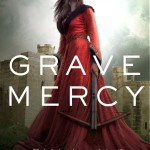
Robin LaFevers, on why she writes: “I think the secret is to find something, not that comes easy to you, but that you love so much you don’t mind working hard at it. And I think that’s what writing is, for me. So Grave Mercy, I did like fifteen drafts. I worked on it over five years, maybe six. I wrote it all in 3rd person, then had to change it to 1st and wrote it all again. Then I had to change it to 1st person present, and I screamed so loud I swear to god all of California heard me. But you just keep doing it to uncover the right story.”
Maggie Stiefvater, on her teenage writing: “I had this one scene, and it was the beginning of the book, this big kerfuffle with Irish terrorists and policemen and bystanders and a dog, and a flag flying overhead – and who do you think I chose to narrate that scene? Everyone says the dog, but that would be illogical. No, I chose the flag. ‘And the flag flew on, above, uncaring, because it was, after all, only a flag.’ “
Lauren Myracle, on how she became a writer: “I wanted to become a creative writing major, but then on the last day of class, this lady Daphne (she was our teacher), she came in and she said, ‘Oh I forgot to mention, only twelve of you can go on to take the next class, it’s an elective process.’ So she had a stack of twelve pink slips (it was back in the dark ages, when it wasn’t all computerized). ‘If I give you a pink slip,’ she said, ‘you can go on, you’ve been selected.’ You know what’s going to happen, but I honestly had no idea. I was looking around thinking, who are those poor two people, who are they going to be, and man, they’re going to- I feel so bad for them. And the stack is getting lower, and lower, and lower, and then she’s given out the last one, and the two poor sad sacks who weren’t selected were me and a young woman named Stephanie. (No, not Stephenie Meyer.)
Maureen Johnson, on how she started writing: “I just did it. And that’s the kind of long and short of it. There’s a long period when you just do it, even when you really suck at it, and there doesn’t seem to be any discernible end. There’s nobody going, where’s the book?”
Ransom Riggs, on absentee parents in YA: “You’ve got to get rid of them somehow, if the kids are going to go off and do cool stuff.”
Robin LaFevers, on creating fantasy worlds: “If there are no rules, there’s no risk. If they can do anything, there’s never any danger involved. “
Kendare Blake, on what scares her: “I love things that are implied…When is JAWS the scariest? When you can’t see him. When he’s under the water and he’s coming to get you.”
“The scariest thing is always the unseen. The unseen and the unknown.” – Robin LaFevers
“It’s hard to write about squishy things.” – Maureen Johnson‘s deadpan answer when asked about writing sex and violence in YA
“As a kid, that’s how I learned about the world. It’s a safe place to learn about violence, because you can only make a book as violent as you can imagine it. I used to read novels all the time, and my Dad would pass down old thrillers, so I grew up reading Dean Koontz and Michael Crighton and all of these things. And reading them as a kid, I got one thing, and then I go back and read them as an adult and I’m like, uuuuuhh, I had no idea!” – Maggie Stiefvater
Thane Rosenbaum, on the perception of YA: “I never understood – how is To Kill A Mockingbird not a ‘Young Adult’ novel?”
“Kids can smell it a mile away when you write down to them.” – Ransom Riggs
Jack Gantos, on writing to a YA audience: “I think anyone who writes books – all of us up here – serve the book first. You’re serving the story well before you serve the reader. I think, in my case, I look at the reader as the vampire. The reader is sort of sucking the imagination out of my book. And that’s a good thing, you know. But I think that the first job is still not really to try and pander to your audience, because I think that you can really make some missteps, if you begin to condescend to that audience, and completely try to over-steer the book.”
Ransom Riggs, on his grandmother: “My grandmother was a really fascinating person who had dozens of stories, which I wish I could remember more of. She died when I was twelve, and I wish I’d had the opportunity that Jacob (my character) had, to dig a little deeper, a little longer, a little older, and keep going. I want to know more. It feels like the march of time is stealing all my stories. I want to get them back.”
Jack Gantos, on the town of Norvelt: “And then I’m looking at this crowd and I realize, they don’t know their own history. They’ve lost it, too much time has passed, and it’s gone. It’s gone away.”
“Stories need to be told, and they need to be remembered in some meaningful way.” – Thane Rosenbaum

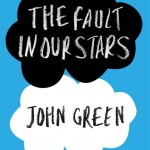
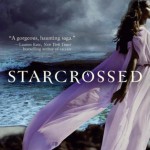
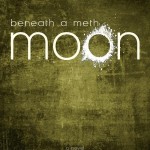
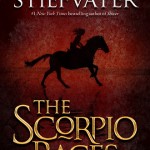
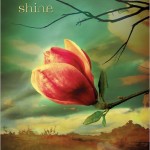
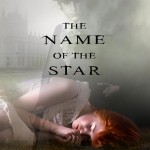
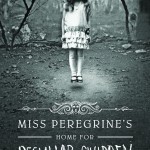
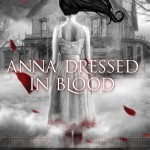
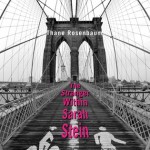
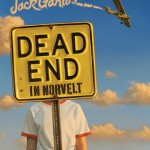






Leave a Reply